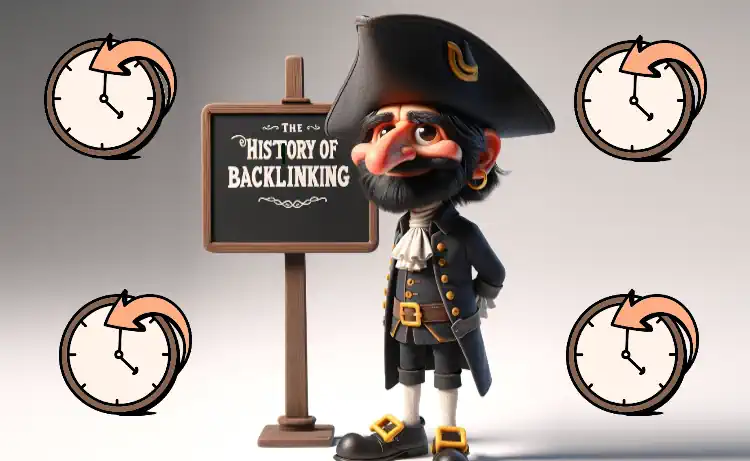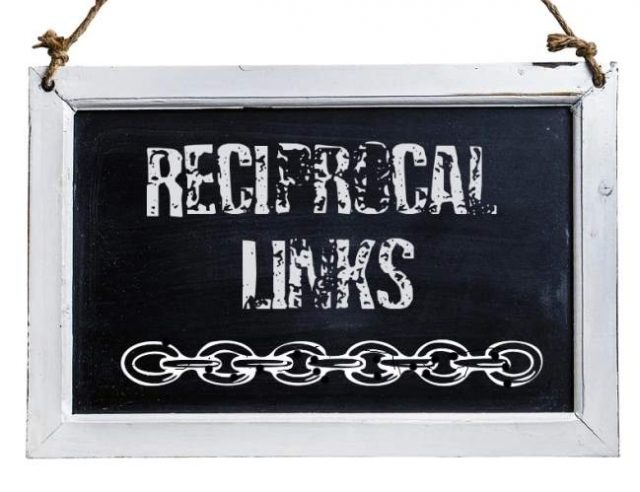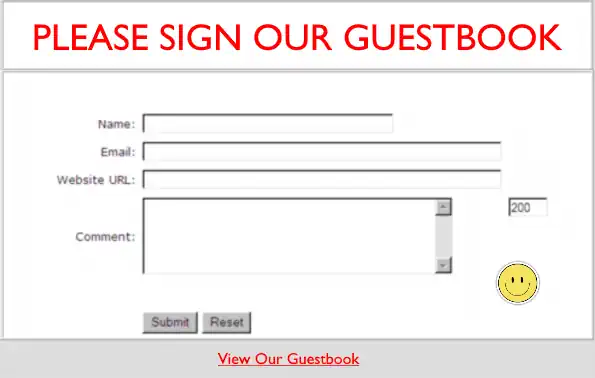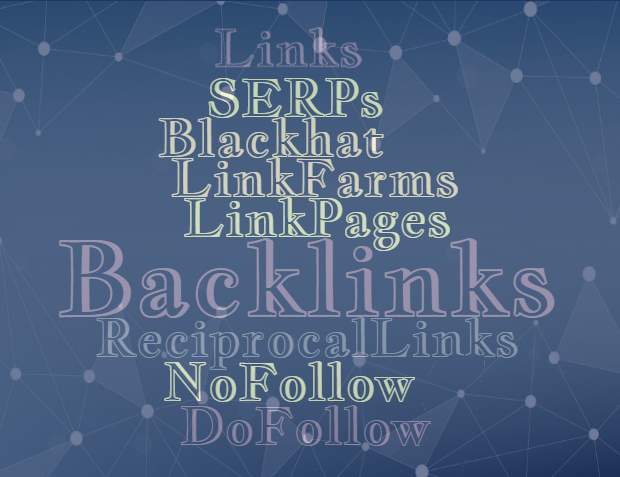What is a backlink? It’s really very simple. Anytime another website places a URL link on their site that links directly back to your site, it’s called a backlink. Why are backlinks important? Because they help bring people to your website, but also because they help boost your site’s search engine standing.
Backlinks have always had some bearing on how well a site ranks in search engine result pages (SERPs). However, in the early days, the algorithms were not designed to take into account people trying to cheat the system.

In the early days of search engines, some website owners and SEO practitioners employed various techniques to manipulate search rankings by artificially inflating the number – though not necessarily the quality – of backlinks to their sites.
While these methods may have temporarily boosted rankings, search engines have since caught on and now penalize sites that engage in these practices.
Some of these outdated and frowned-upon techniques include:
Link Pages
Webmasters often created one web page on their sites specifically to house reciprocal links. This was called a links page. It was used by people building reciprocal links to better leverage their site in search engine results.
But these pages provided no real content.
Quite often, reciprocal links were exchanged between sites that had no direct relevance to each other. So, on a links page, you might find a link to a golf site and another to a dog site, when the website hosting the links sold furniture. It obviously made no sense to reward this type of behind-the-scenes ranking manipulation!
Link Farms
In addition to this practice, another way this was done was by loading up on backlinks from sites that had nothing but links on them, and no content of any real relevance. These sites quickly became known as link farms and were used by webmasters to increase the ranking of their sites. These networks of websites were created solely for the purpose of linking to each other. The goal was to create a large number of incoming links to boost search rankings.

Reciprocal 2-Way Links
A reciprocal link is a type of link where two sites have an agreement to link back and forth to each other’s site or blog. It’s a “you scratch my back and I’ll scratch yours” kind of arrangement. This tactic aimed to increase the number of backlinks for both sites.
If one site offered corresponding content on the same topic as the site it was linking to, this kind of linkage would make sense. But it rarely did. Link building done this way was used to try to game the search engine rankings and was eventually frowned upon by Google and the other search engines.

3-Way Links
Next came 3-way links. Once the search engines caught on to the reciprocal links, people came up with 3-way links to try to beat the system. In a 3-way link, three websites would agree to link to each other in a circular pattern (A links to B, B links to C, and C links to A). This was an attempt to make the link exchanges appear more natural to search engines. That way, there was no direct line between the two links. But again, the links often had no relevance to the website they came from. Why would a site about cars link to a site about bracelets?
Guest Book Links
It is common for people to sign a guest book when they attend someone’s wedding or funeral. Back in the day, internet guest books were a common form of leaving comments or thoughts about a website. Just like a printed guest book, you would say hi, leave your comment and your name, and add a link to your website. Anyone could sign the guest book and leave a link, so of course there was no relevancy between the site it was on and the site it was linking to.

Paid Links
Some website owners would pay other sites to link back to their own, either through direct monetary compensation or by providing goods or services in exchange for links. This practice is still in use today, but the major search engines have policies against paid links. Such activities are generally considered violations of their guidelines and can lead to penalties for the websites involved.
Comment Spam
People would post comments on blogs, forums, and other websites with links back to their own sites, often using automated tools to spam multiple sites quickly. These comments rarely added value to the discussion and were primarily used to create backlinks.
Hidden links
Webmasters would sometimes hide links on their pages by making them the same color as the background, using tiny font sizes, or placing them off-screen using CSS. The idea was to make the links invisible to users but still detectable by search engine crawlers.
Starting to Improve
As time went on, people came up with more and more ways to try to game the system. Google was one of the first major search engines to start looking at how to reward good quality links that had relevance and added value to a site instead of rewarding the savvy, but somewhat unscrupulous practices of cheating the search engine results with backroom deals and black hat tricks.
They kept using backlinks as a determinant of reputation but also strengthened their algorithms to look for specific higher-quality links and to penalize links from link farms and other black hat maneuvers.

All this from just some simple links to your site? Yes! Things have changed, and search engines continue to adjust their algorithms to find the good and weed out the bad, so they can provide users with the best possible content.
Today, you need to know which factors determine the value of a link. A quality backlink depends on the anchor text in the link, the page title of the page linking to your site, the reputation and quality of the site linking to your website and the method used to create the backlink.
You need to know the differences between the different types of backlinks and understand how to get the best mix of types to get the most traffic to your website.
Beware, though, because there are some pros and cons to each kind of backlink, and if you use them incorrectly or in the wrong combination you could end up actually lowering your search engine ranking by mistake.
As search engines have become more sophisticated, they have developed algorithms to identify and penalize sites that engage in these manipulative practices. Modern search engines prioritize backlinks that come from high-quality, relevant websites and are earned through the creation of valuable, informative content. Websites that still employ these outdated tactics risk being penalized or even removed from search engine results pages altogether.
